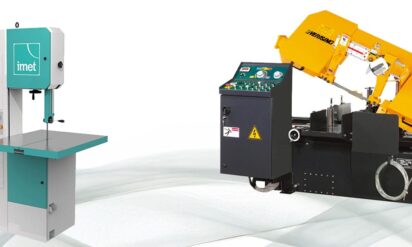In the world of metal cutting tools, one term often appears in online searches: CNC (Computer Numerical Control) equipment. These marvels of automation have completely changed the manufacturing industry, providing precise, efficient, and reliable operations with minimal human intervention. These machines are everywhere in manufacturing.
In this post, we will explore the main benefits of CNC equipment. We will discuss how they work, their advantages, and their drawbacks.
Scroll to the bottom of the page for a summary of this article.
Processing Power
- Control Mechanism:
CNC machines, which stands for Computer Numerical Control machines, use advanced computer programs to work very accurately and efficiently. These programs have clear instructions made of letters and numbers. They tell the machine how to move the tool and shape the material.
This organized data shows a series of movements. It ensures that every cut, drill, or carve is done precisely. This leads to high-quality products. With these programmed instructions, CNC machines can perform complex tasks. These tasks would be hard or impossible to do by hand. This shows how important CNC machines are in today’s manufacturing.
- Program Input:
CNC cutting machines utilize a sophisticated computer interface that allows for precise control and programming of the cutting process. This interface is often accompanied by a small keyboard, which enables operators to input specific commands and parameters manually. Thanks to this new technology, many CNC machines now use touchscreens. This lets users enter programs directly.

- Program Modification:
CNC machines provide great convenience for changing programs. This makes it easy to adjust different settings. Alternatively, for those who like a more centralized approach, these machines can be accessed remotely from an office. This is possible if they are properly connected to a network. This capability not only enhances efficiency but also enables greater flexibility.
in manufacturing processes, as it allows for immediate adjustments without the need to be physically present at the machine.
- Operator Skill Level:
CNC machines can now be managed by less experienced individuals. The computer control unit plays an important role in completing tasks. When CNC equipment connects with Industry 4.0, remote programming is possible. This could lead to decreased overhead expenses for companies and lessen dependence on operator skills.
- Program Storage:
CNC equipment can store programs in the computer for repeated use. The number of program slots varies by manufacturer and model. Some higher-end models, like the IMET XT and Everising E Range of CNC bandsaws, have a material library. This library includes hundreds of preset programs built into the computer unit.
- Flexibility:
CNC machines are more flexible and adaptable than other types of machines. They can accommodate a much broader array of tasks and can be easily reprogrammed to execute different manufacturing functions. This adaptability is important for industries with changing production needs. CNC machines can quickly adjust to new tasks. They do this without needing major changes or retooling.
- Computing Capability:
CNC machines have advanced computer systems. These systems help them follow complex instructions and handle data very accurately. They can perform complex machining tasks with enhanced accuracy, consistency, and speed. This advanced computational ability allows CNC machines to undertake functions that might exceed the capabilities of semi-automatic or manual variants.
- Accuracy:
CNC machines are more accurate than NC and manual metal cutting machines. This is due to their advanced computer control. They also have error compensation and feedback systems. These features ensure precise and consistent machining every time.
- Job Execution Time:
CNC machines generally operate significantly faster than other machine types. This speed comes from their ability to handle complex tasks. They also need fewer operator interventions between cuts. As programming is automated, CNC machines can eliminate many time-consuming elements of a job.
- Continuous Operation:
CNC machinery can function round-the-clock, provided adequate material is loaded. CNC machines can operate without human intervention, accelerating production and increasing project profitability.
- Initial and Ongoing Costs:
It is well-known that CNC machinery falls on the higher end of the pricing spectrum. These machines are equipped with advanced technology that is costly to manufacture. They also need software updates and trained CNC workers to fix problems. This can lead to higher long-term costs compared to manual machines. However, having a service agreement can help keep costs down and reduce breakdowns.
CNC Machinery Summary
CNC (Computer Numerical Control) machines have changed manufacturing. They work accurately and efficiently with little help from people. This article talks about the main benefits of CNC machines. These include easy controls, simple programming, and less need for skilled workers. CNC machines can handle different tasks and are very accurate and fast.
Although they cost more to buy and keep running, they can work all the time and finish jobs quicker, which boosts productivity. In short, CNC machines need a larger investment. However, their benefits, such as better accuracy and flexibility, make them a top choice. This is especially true for industries that need to adapt to complex tasks.
Choosing between these two technologies depends on your specific needs and budget. If you want a metal cutting CNC machine and need help finding the best option, Addison is here to assist you.
Links
Links to our CNC Machine Ranges
CNC Machining Centers (for aluminium)
CNC Band Saws (For steel and ferrous materials)
Contact us at 01384 264 950 for expert guidance today.



